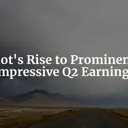Tags: Cash / share buyback
This fanpage is not officially affiliated with Berkshire Hathaway: Disclaimer
Right before the 2023 shareholder meeting, we provide a thorough analysis of Berkshire Hathaway's financial condition at the start of 2023, covering shareholders' equity, stock repurchase program, cash and investments, borrowings, and operating cash flows.
With historic references and insights, we hope to provide valuable information for shareholders of Berkshire Hathaway. The article is based on Berkshire Hathaway's 2022 annual report.

Berkshire Hathaway Financial Condition Start of 2023
Berkshire Hathaway began 2023 with a consolidated shareholders' equity of $472.4 billion, a decrease of $33.8 billion since December 31, 2021. The net loss attributable to Berkshire shareholders was $22.8 billion, including after-tax losses of approximately $53.4 billion.
As shareholders of Berkshire Hathaway, it is crucial to analyze the company's financial condition to understand its current position and future prospects, see also our analysis on Berkshire's record operating earnings 2022.
Importance of Analyzing the Financial Condition of a Company
Analyzing the financial condition of a company is essential for shareholders. Financial statements provide crucial information about the company's performance, profitability, and financial health. It helps investors evaluate the company's ability to generate profits, pay off debts, and provide returns on their investments. By analyzing the financial condition of a company, shareholders can assess the risks and opportunities associated with investing in the company and make informed decisions.
Consolidated Shareholders' Equity and Net Loss Attributable to Berkshire Shareholders
The decrease in consolidated shareholders' equity since December 31, 2021, was primarily due to losses in Berkshire's investment portfolio. The company's investment portfolio includes equity and fixed maturity securities, excluding Kraft Heinz and Occidental common stock, which were valued at $333.9 billion at the end of 2022.
The investment portfolio's decline was driven by the underperformance of some of Berkshire's key holdings, including Apple Inc., Bank of America Corp., and American Express Co. amid 2022's bear market in which the S&P500 lost around 12%.
Berkshire's unrealized losses on its investment portfolio were approximately $53.4 billion at the end of 2022. However, it is essential to note that unrealized losses do not impact the company's cash flow or liquidity.
Despite the decline in consolidated shareholders' equity and the net loss attributable to Berkshire shareholders, the company's long-term outlook remains positive. Berkshire Hathaway has a diversified portfolio of great businesses - subsidiaries and investments that generate significant cash flows, which allows the company to reinvest in its existing businesses and acquire new ones.
In addition, Berkshire's common stock repurchase program provides shareholders with an opportunity to realize value, as the company tries to repurchase shares below intrinsic value as determined by Warren Buffett and Charlie Munger, which we shall detail in the following.
Common Stock Repurchase Program
Berkshire's common stock repurchase program allows the company to repurchase Class A and Class B shares at prices below intrinsic value as determined by Warren Buffett and Charlie Munger.
During 2022, Berkshire paid $7.9 billion to repurchase shares of its Class A and Class B common stock. The repurchase program reflects Berkshire's confidence in its long-term prospects and its commitment to returning value to shareholders.
The common stock repurchase program is an essential tool for Berkshire to deploy its excess cash. The company has a significant amount of cash and cash equivalents, which it can use to repurchase shares and invest in its existing businesses or acquire new ones. It provides Berkshire with the flexibility to allocate capital efficiently and generate value for shareholders.
Cash, Cash Equivalents
Berkshire's insurance and other businesses held cash, cash equivalents, and U.S. Treasury Bills of $125.0 billion at December 31, 2022. The company's significant cash position provides it with the flexibility to invest in its existing businesses or acquire new ones. In addition, the cash position provides a cushion against any economic downturns or unforeseen events. Most importantly, Berkshire is generally known to hold significant amounts cash for insurance emergencies. The company's insurance principles are well-known and provide enough liquidity even for drastic catastrophys.
For Berkshire, cash is king.
Consolidated Borrowings and Expected Principal and Interest Payments
Berkshire had consolidated borrowings of $122.7 billion at December 31, 2022. The expected principal and interest payments related to consolidated borrowings in each of the next five years are $17.4 billion in 2023, $10.4 billion in 2024, $11.0 billion in 2025, $8.7 billion in 2026, and $8.1 billion in 2027:
| Year | Expected Principal and Interest Payments |
|---|---|
| 2023 | $17.4 billion |
| 2024 | $10.4 billion |
| 2025 | $11.0 billion |
| 2026 | $8.7 billion |
| 2027 | $8.1 billion |
The consolidated borrowings provide Berkshire with the necessary capital to invest in its existing businesses and acquire new ones. However, the company's debt position exposes it to risks associated with rising interest rates and economic downturns. Note that it not that easy to assess Berkshire's liabilities, because the company exhibits a staggering float of $164 billion, which is technically a liabilty but in reality one of the investment backbones of Berkshire Hathaway!
The expected principal and interest payments in the next five years highlight the importance of managing the company's debt position and ensuring that it has sufficient cash flows to service its debts.
Outstanding Borrowings and Senior Notes Issued by Berkshire and its Subsidiaries
Berkshire debt outstanding at December 31, 2022, was $21.4 billion. The company issued ¥243.5 billion (approximately $1.94 billion) of senior notes in 2022 with maturity dates ranging from 2025 to 2052 and a weighted average interest rate of 0.8% and continues to do so in 2023. Berkshire's insurance and other subsidiary outstanding borrowings were approximately $25.1 billion at December 31, 2022. Senior note borrowings of BHFC, a wholly-owned financing subsidiary, were approximately $17.9 billion at December 31, 2022.
BHFC issued $4.5 billion of senior notes maturing in 2027, 2032 and 2052 with a weighted average interest rate of 3.4% and €1.25 billion (approximately $1.4 billion) of senior notes maturing in 2030 and 2034 with a weighted average interest rate of 1.8%.
BNSF runs a capital-intensive business. Its outstanding debt was $23.5 billion as of December 31, 2022, an increase of $233 million from December 31, 2021. BNSF issued $1.0 billion of 4.45% debentures due in 2053 and repaid approximately $900 million of term debt in 2022. BHE and its subsidiaries had outstanding borrowings of $52.8 billion at December 31, 2022, an increase of $1.0 billion since December 31, 2021. BHE issued $1.0 billion of 4.6% senior notes due in 2053 in 2022, and its subsidiaries issued approximately $3.0 billion of term debt with a weighted average interest rate of 5.2% at December 31, 2022, and maturity dates ranging from 2024 to 2053.
The significant amount of outstanding borrowings and senior notes issued by Berkshire and its subsidiaries highlights the company's dependence on debt to finance its operations and investments. The company's debt position exposes it to risks associated with rising interest rates and economic downturns. However, Berkshire's significant cash position and diverse group of businesses provide it with the necessary resources to service its debts.
Operating Cash Flows and Capital Expenditures
Berkshire's diverse group of businesses generated net operating cash flows between $37 billion and $40 billion in each of the past three years. The company's operating cash flows provide it with the necessary resources to invest in its existing businesses and acquire new ones. In addition, the operating cash flows provide a cushion against any economic downturns or unforeseen events.
Berkshire's consolidated capital expenditures for property, plant and equipment and equipment held for lease were $15.5 billion in 2022. BNSF and BHE's capital expenditures will approximate $13.7 billion in 2023. The capital expenditures reflect Berkshire's commitment to investing in its existing businesses and acquiring new ones to generate long-term value for shareholders.
The Inflation Reduction Act of 2022
The Inflation Reduction Act of 2022 was signed into law on August 16, 2022. The act includes a 15% corporate alternative minimum income tax, expanded tax credits for clean energy incentives, and a 1% excise tax on corporate stock repurchases. The provisions of the 2022 act become effective for tax years beginning after December 31, 2022.
The corporate alternative minimum income tax and the excise tax on corporate stock repurchases may impact Berkshire's financial performance and cash flows. However, the initial guidance issued by the IRS and Department of Treasury suggests that the impact on Berkshire's consolidated financial statements may not be material. Berkshire's diverse group of businesses and significant cash position provide it with the necessary resources to manage any potential risks associated with the Inflation Reduction Act of 2022.
Conclusion
Berkshire Hathaway began 2023 with a consolidated shareholders' equity of $472.4 billion, a decrease of $33.8 billion since December 31, 2021. The net loss attributable to Berkshire shareholders was $22.8 billion, including after-tax losses of approximately $53.4 billion.
Despite the decline in consolidated shareholders' equity and the net loss attributable to Berkshire shareholders, the company's long-term outlook remains extremely positive. Berkshire Hathaway has a diversified portfolio of businesses that generate significant cash flows, which allows the company to reinvest in its existing businesses and acquire new ones.
In addition, Berkshire's common stock repurchase program provides shareholders with an opportunity to realize value, as the company repurchases shares below intrinsic value as determined by Warren Buffett and Charlie Munger.
Berkshire exhibits a significant cash position of $125 billion in treasuries and $164 billion of float. It is fair to say that this is a moat that makes the company very unique among any investment company in the world. In addition to the cash position, Berkshire's diverse group of businesses provides it with the necessary resources to manage any potential risks associated with its debt position, insurance operation and the Inflation Reduction Act of 2022.
Berkshire's 2022's annual balance sheet outlines once more its reputation as financial fortress. Its financial strength might serve the company well in the looming 2023 banking crisis.












